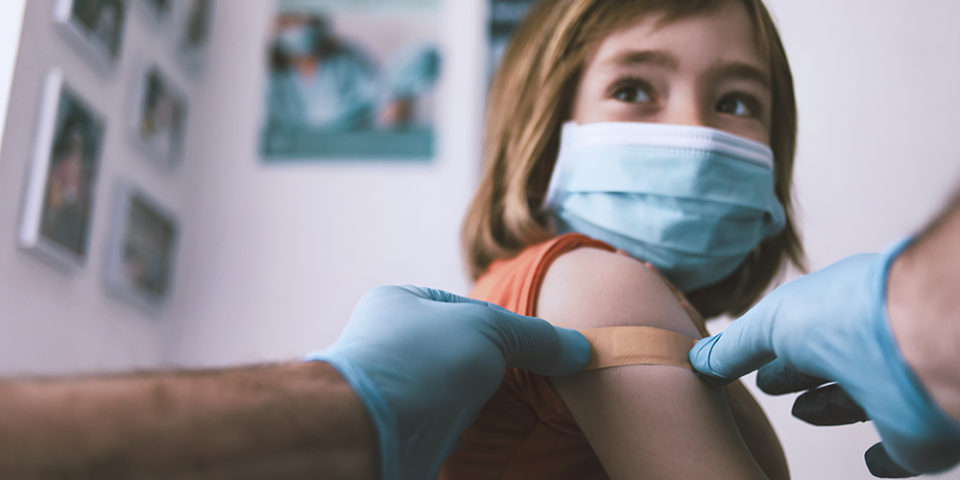What to know about the COVID vaccine for 5- to 11-year-olds
The Food and Drug Administration (FDA) and the Centers for Disease Control and Prevention (CDC) have endorsed the Pfizer vaccine for emergency use authorization in children ages 5 to 11. Pediatric infectious disease expert Anna-Kathryn Burch, MD, explained what parents need to know.
If most children don’t get severely ill from COVID, why should they be vaccinated?
“Even if five to 11-year-olds don’t necessarily have a severe illness, it helps prevent them from spreading it to others who might have a severe illness,” Dr. Burch said.
She broke down the reasons why it’s important for this age group to be vaccinated:
- It protects children from hospitalization and severe illness. This was an increased concerned during the latest surge caused by the delta variant. Getting your child vaccinated is the easiest and best way to protect your child from COVID-19. It protects them from being hospitalized or having severe outcomes, including death. “Yes, we are seeing some vaccinated patients who are being hospitalized for COVID-19, but the overwhelming majority, especially in the pediatric population, are those who are not vaccinated. The vaccine may also help against multi-inflammatory syndrome in children (MIS-C) as well,” she said.
- It helps herd immunity. Vaccination helps with the burden of disease overall. This means the number of people in the community who are infected with COVID. When many people are vaccinated, you’re less likely to have a large burden of disease, and that’s called herd immunity. Herd immunity helps do two things: It helps drive down the numbers of actual COVID cases, and it helps to protect those who are not eligible to get the vaccine.
- Quarantine rules are different for vaccinated students. Once they reach two weeks after their second dose, your child is fully vaccinated. If they’re exposed to COVID at school, they don’t have to quarantine. If they have no symptoms, they get to stay in school instead of homeschooling. “Being able to stay in school with their peers is paramount, especially among the elementary school age group,” Dr. Burch said. “They need to be in school more than any other age group.”
Is it the same vaccine that adults and adolescents receive?
Yes, it will be a smaller dose of the same vaccine, offered in two doses several weeks apart. You’re not considered fully immune until you are two weeks after the second dose.
Why smaller doses?
Children have robust immune systems because they’re growing and encountering different viruses and bacteria. They also have robust responses to vaccines.
“That means we must find the right amount of vaccine that offers equal protection but doesn’t cause too much of an immune response, such as fever or aches and pains, so they feel okay after receiving the vaccine,” Dr. Burch said.
Are there any concerns about how the vaccine might affect children?
“The research for Pfizer is based on over 2,000 children, so I would not be concerned that this vaccine would cause any adverse effects to a developing child,” Dr. Burch said. “That is obviously something the drug companies and the FDA are looking at. Vaccines are a great thing. We have eliminated smallpox. We have essentially eliminated polio. This is a way for us all to stay healthy.”
Have questions about the COVID-19 vaccine?
Find answers to frequently asked questions about the COVID-19 vaccine, including how to get the shot.


